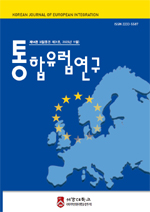1970년대 초 베를린에서 등장한 튀르키예의 거리 음식 되너 케밥은 오늘날 독일의 국민 거리 음식이 되었다. 독일 전역에서 문을 연 18,000여 개의 되너 가게 중 무려 1,600여 개가 밀집해 있는 ‘되너의 메트로폴리스’ 베를린에서 되너는 관광객이 반드시 체험해야 할 거리 음식 중 하나로 소개된다. 튀르키예 이주민 음식문화의 성공은 맥도날드나 KFC의 경우와 결이 다르다. 세계 전역에서 유행을 선도하는 미국 대중문화가 수용되는 것은 전혀 특별한 일이 아니다. 그러나 이슬람과 유목민 문화가 혼합된 튀르키예 전통 음식이 유럽에서 주목을 받는 것은 특별하다. 되너의 성공은 당연히 학계에서도 주목받았다. 되너가 독일 거리 음식 문화를 전면적으로 바꾸었다는 사실에서 출발해 이주에 의한 문화 융합의 사례로 바라보는 연구들이 이루어졌다. 본 연구에서는 튀르키예 이주민의 음식으로 출발한 되너가 독일적 요소를 일부 수용함으로써 독일 음식으로 재탄생하는 과정을 스케치하고, 훗날의 성공과 독일 국민 거리 음식으로 자리를 잡은 오늘날의 위상을 살펴본다. 이어서 되너가 튀르키예 이주민 공동체의 정체성 유지에 어떠한 기여를 했는가를 다룬다. 물론 되너가 튀르키예-독일 간의 문화 교류나 융합에 있어 가교 역할만 한 것은 아니다. 되너는 이주민에 대한 주류 사회의 이해를 촉진했지만, 동시에 이주민에 대한 적대감으로 고양하기도 했다. 따라서 본 연구는 마지막 장에서 되너를 통해 표현된 이주와 이주민에 대한 거부와 저항을 고찰한다.
The Döner Kebab, a Turkic street food that emerged in Berlin in the early 1970s, is now recognized as Germany's national street food. In Berlin, the “metropolis of Döner,” home to more than 1,600 of the 18,000 Döner shops that have opened across Germany, Döner is listed as one of the must-try street foods for tourists. The success of Turkic immigrant food is not the same as that of McDonald's or KFC. It's not unusual for trend-setting American pop culture to be embraced around the world, but it's unique for traditional Turkic food, a blend of Islamic and nomadic cultures, to gain traction in Europe. Not surprisingly, Döner's success has also caught the attention of academics. Starting with the fact that Döner has changed the German street food culture forever, studies have looked at it as an example of cultural fusion by migration. This study sketches the process of Döner's transformation from a Turkic migrant dish to a German dish by adopting some German elements, followed by its subsequent success and its current status as a national street food in Germany. The chapter concludes with a discussion of Döner's contribution to maintaining the identity of the Turkic migrant community in Germany. Of course, Döner was not only a bridge to cultural exchange and fusion between Turkic and German cultures. While Döner facilitated mainstream society's understanding of migrants, he also fostered hostility towards them. Therefore, in the final chapter, this study examines the rejection and resistance to migration and migrants expressed through Döner.
1. 들어가는 말
2. 되너의 독일화
3. ‘기억의 장소’ 되너
4. 되너에 대한 거부
5. 맺는말
